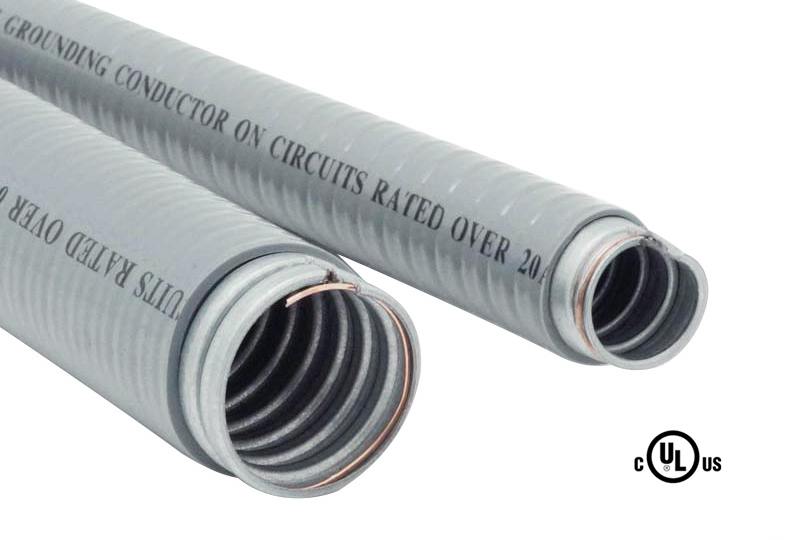Liquid Tight Metal Conduit is a type of electrical conduit that is designed to protect electrical cables from moisture and other environmental hazards. It is commonly used in outdoor and indoor applications, and it is popular in a variety of industries including oil and gas, construction, and manufacturing. Like any material or product, Liquid Tight Flexible Metal Conduit has advantages and disadvantages, and in this article, we will explore them in detail.
Advantages of Liquid Tight Flexible Metal Conduit
Waterproof: Liquid Tight Flexible Metal Conduit is designed to be waterproof, making it an excellent choice for use in damp and wet environments. It can also withstand exposure to oils, chemicals, and other hazardous materials.
Flexible: The flexibility of Liquid Tight Flexible Metal Conduit allows it to be easily installed around corners and bends, making it ideal for use in tight spaces where other types of conduit may not fit.
Durable: Liquid Tight Flexible Metal Conduit is made from high-quality materials, which makes it resistant to damage and able to withstand harsh conditions.
Easy to install: Liquid Tight Flexible Metal Conduit is easy to install, which means that it can save time and money during the installation process.
Provides electromagnetic shielding: Liquid Tight Flexible Metal Conduit provides electromagnetic shielding, which makes it an excellent choice for use in areas with high levels of electromagnetic interference.
Low fire hazard: Liquid Tight Flexible Metal Conduit is made from materials that are resistant to fire and heat, which makes it a safe choice for use in areas with high temperatures.
Disadvantages of Liquid Tight Flexible Metal Conduit
More expensive than other types of conduit: Liquid Tight Flexible Metal Conduit is more expensive than other types of conduit, which can increase the overall cost of an electrical installation.
Difficult to cut: Liquid Tight Flexible Metal Conduit is difficult to cut, which can make it challenging to install in areas that require precise cuts.
Not suitable for all applications: Liquid Tight Flexible Metal Conduit may not be suitable for all applications, and it is important to carefully consider the specific needs of an installation before choosing this type of conduit.
Requires specialized fittings: Liquid Tight Flexible Metal Conduit requires specialized fittings, which can increase the cost and complexity of an installation.
Limited temperature range: Liquid Tight Flexible Metal Conduit has a limited temperature range, and it may not be suitable for use in areas with extremely high or low temperatures.
Limited size range: Liquid Tight Flexible Metal Conduit is available in a limited range of sizes, which may not be suitable for all types of electrical installations.
In conclusion, Liquid Tight Flexible Metal Conduit has many advantages that make it an excellent choice for use in a variety of applications. However, it is important to carefully consider the specific needs of an installation before choosing this type of conduit. While it is durable, waterproof, and easy to install, it is also more expensive than other types of conduit and requires specialized fittings. Additionally, its limited temperature range and size range may make it unsuitable for certain applications. By weighing the advantages and disadvantages of Liquid Tight Flexible Metal Conduit, individuals can make an informed decision about whether or not it is the right choice for their specific electrical installation.

评论
发表评论